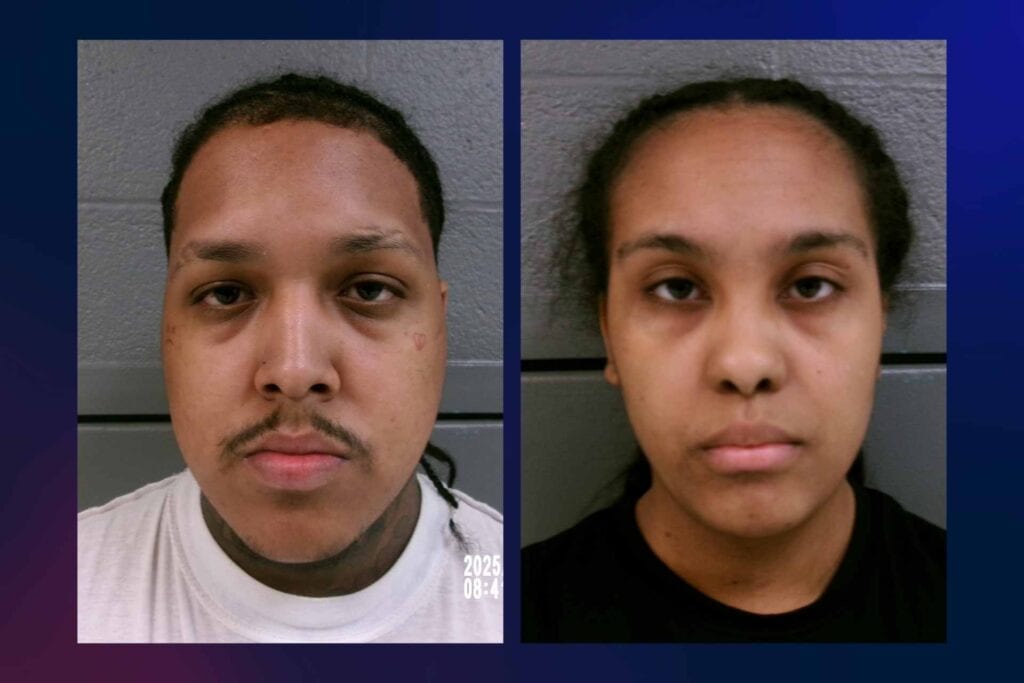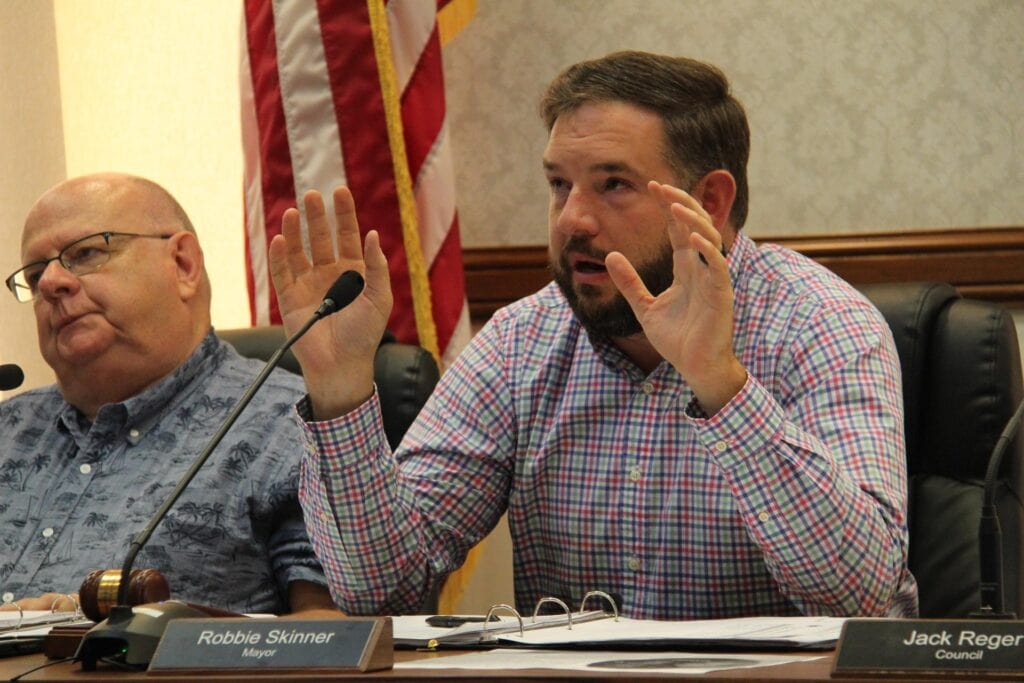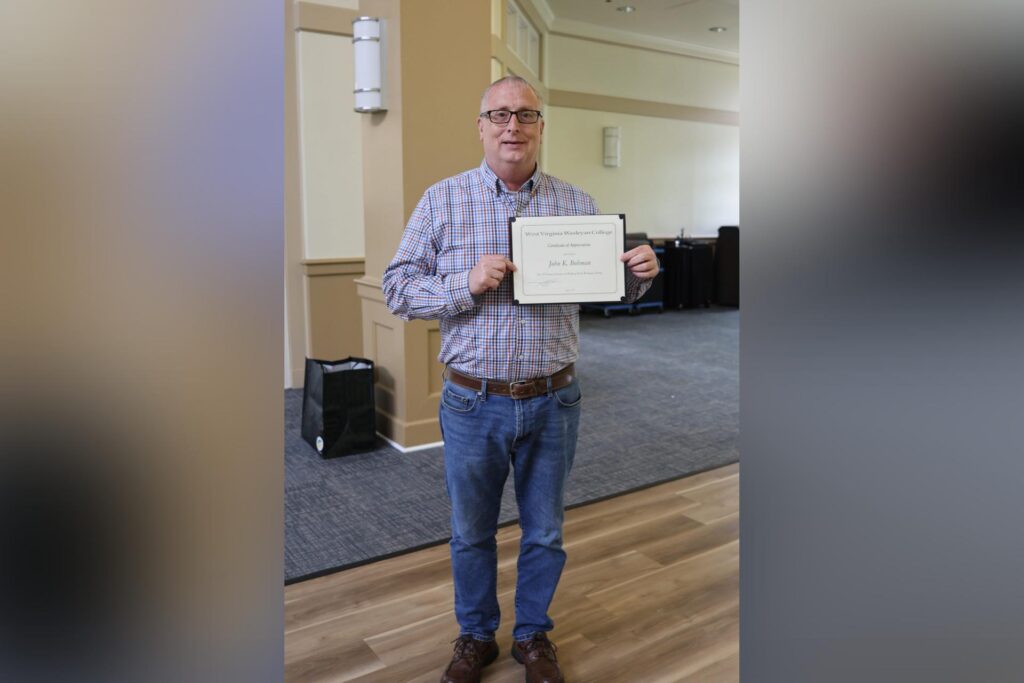BUCKHANNON – The Rotary Club of Buckhannon-Upshur learned about the signs a child exhibits after going through trauma – and what to do if they witness these signs – at its most recent meeting.
Laura McDaniels, Mountain CAP Child Advocacy Center Coordinator and Child Advocate, spoke at the Rotary Club’s virtual meeting April 20 meeting in honor of Child Abuse Awareness and Prevention Month.
“The following are just some of the possible traumatic experiences that young children may experience, and this is according to the National Child Traumatic Stress Network; they have a lot of great resources that we use,” McDaniels said. “Physical, sexual, psychological or emotional abuse; witnessing domestic violence; witnessing community violence; grief or loss of a loved one; medical injuries or serious illnesses; and so on and so forth.”
McDaniels shared a hypothetical story about a four-year-old who seemed excited at school, screamed, cursed and destroyed the classroom.
“Unbeknownst to his teachers [this child] had been witnessing domestic violence and experiencing physical abuse since birth,” McDaniels said. “Furthermore, [the child’s] mom worked the night shift, and his dad worked the day shift at the same 24-hour diner. Because of his parents’ schedules, there were times when [the child] woke up in the morning and found himself alone. I picked this story because it’s something that is very familiar in our counties that we serve – we serve Upshur and Lewis – and it’s very common in the cases that we see.”
McDaniels encouraged concerned individuals to report signs of abuse or trauma and trust their instincts.
“Some signs are more obvious than others, and it’s always good for you to trust your instincts and go with your gut if you think that something is going on,” McDaniels said. “Just so everyone is aware, in West Virginia, if you’re over the age of 18, you’re more or less a mandated reporter so just keep that in mind. You do not need proof, you can go with your gut, and you can make a good faith report, and there’s no backlash.”
She discussed various signs of trauma, abuse and neglect, including returning to behaviors exhibited at earlier stages of child development.
“Any sort of lack of personal care hygiene sticks out to me, and the returning to earlier behaviors, especially with children who have been sexually abused, they can start bedwetting and having incontinence,” McDaniels said.
She said a person trying to help the child should convey understanding, compassion and try to determine if they are in any danger.
“For the child to tell you more than what he or she is willing to tell you at that time, they need warmth and acceptance, and it’s not necessary for any sort of intimate details,” McDaniels said. “Ask only for information to assess for the child’s safety: Are they in immediate physical danger? Is there a crisis? Are there others in the home who can protect the child? Are the proper authorities being contacted?”
She said the child needs to feel like they are in a safe space and that the person they’re confiding in can help them.
“Keep your own feelings under control, which is extremely difficult,” McDaniels advised. “Remain calm and nonjudgmental and be careful not to criticize or belittle the child’s family, indicate you’re listening to them, and use the words that the child uses to describe the incident. Tell the child that you can’t promise not to tell someone, and there are people who can help keep kids safe and you may have to tell.”
“Tell the truth, and don’t make any promises that you can’t keep, particularly relating to secrecy, court involvement, placement and child welfare decisions, so let the child know exactly what might happen,” she added.
McDaniels emphasized that it’s important to listen to the child without attempting to gauge if the allegation is valid; that determination needs to be made by Child Protective Services or law enforcement.
“It’s their responsibility to conduct the full investigation; it’s your responsibility to make that initial report, even if it’s just a gut feeling,” McDaniels said. “Do not correct or criticize the child’s choice of words or their use of language. Especially in sexual abuse cases, the child may use graphic language to disclose, and usually this is something that they’ve learned from their perpetrator. Don’t ask a lot of questions; just receive the information and let them know that you can handle whatever they wish to share.”
If listeners are able to refrain from exhibiting anger or impatience, the child may be willing to share as much information as they’re comfortable with sharing. McDaniels highlighted several other important ‘dos’ and ‘don’ts’ for adults and mandated reporters.
“Don’t make negative comments about the perpetrator or launch into a moral lecture; refrain from judging the suspected perpetrator and his or her actions; do not disclose this information indiscriminately, [meaning] tell only those adults who need the information to protect the child, which would be law enforcement,” McDaniels said. “Don’t stand over the child when they’re disclosing abuse. Maybe come down to their level; make sure that you’re on eye level with them and don’t suggest to a child that you think he or she may have been abused.”
To report suspected child abuse or neglect, follow the automated prompts at 1-800-352-6513 or learn more about how to report child abuse/neglect on the W.Va. Department of Health and Human Resources’ Centralized Intake for Abuse and neglect. You can also read about childhood trauma at the National Child Traumatic Stress Network.














